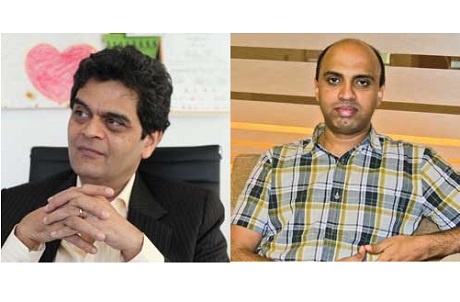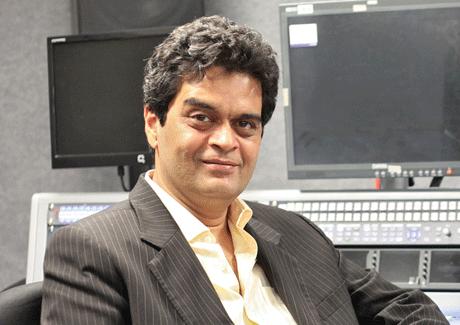The Advertising Standard Council of India (ASCI) hosted the ‘Creativity, For Goodness’ Sake’ event on 20 March in Mumbai. At the event, Narendra Ambwani, chairman, ASCI, officially announced the launch of the e-learning portal.
The event saw presentations from Shantanu Khosla, MD, P&G India; Sir John Hegarty, Founder, BBH; followed by comments from Paritosh Joshi, director, Provacateur; Bobby Pawar, director - chief creative officer, Publicis South Asia; Santosh Desai, MD and CEO, Future Brands.
Khosla argued the case against rules being a hindrance to creativity and the concept of regulation. He said, “The context and culture is changing, people, technology, economic powers are changing. Trust has become a very valuable commodity. Who makes these ASCI rules? I believe that ultimately these rules are coming from the consumers themselves. As the above factors change, the rules change.”
He highlighted the role consumer insights play in order to arrive at the best creative idea. “Regulation comes from the same source where fundamental consumer insight comes from. The people I serve write the rules, no one else. These rules are not static - just like society is not static- and, here is where our responsibility lies. What we do today helps influence what society thinks tomorrow.”
He cited Whisper’s #LikeAGirl and Gillette’s 'Soldier for women' campaigns as examples of communication created based on consumer insights.
“Whether you have a regulation that restricts you or not, as long as you’re building that relationship with your consumer with insights you’re building your brand,” Khosla added.
“If you stay consumer based and insight based, your creative will be powerful and will touch the heart of your consumers and hopefully, build the business better,” he opined.
Sir John Hegarty spoke about what creativity means to him and why 'shock the audience' is the wrong approach.
“I don’t view creativity as about creating shock. Creativity is about helping us engage.”
He cited an example of a Pepsi ad, The Thirst (1987), created for the Saudi Arabian market. The brief for which, he said, involved a lot of market-specific restrictions.
He warned against the award-baiting approach. “Awards have become a curse in advertising. The problem now is so much of what we do has to be in light of winning an award. Why is that? The media measures us against awards. The big agency groups have started considering awards as fundamentally important. And therefore they’re encouraging all kinds of behaviour, which is not conducive to create great advertising. Awards have now been hijacked with commerce to prove one agency is better than the other.”
But what does work, he said, are universal insights. The Johnnie Walker ‘Keep Walking’ ad was shown as an example of using emotion that appeals the audiences across boundaries.
Hegarty voiced his concerns about the road advertising is on. He said, “Advertising is trying to move into other areas and I have serious concerns about that. We seem to be heading to a stage where we are undermining the value of what we do by pretending it’s not advertising. I didn’t come into advertising to be deceitful. I came in to advertising to inspire people.”
Product demonstrations, he says, are another way of getting the message across. He signaled towards a trend that in some cases, by the end of an ad, there might not be clarity on the product itself that was being advertised.
He opined, “I love the idea of product demonstrations, they hold a real truth to it. The idea is to wrap product demonstration in emotions.”
The evening, on the subject of self regulation, saw speakers commenting on the subject.
Joshi emphasised that a body such as ASCI should not be seen a foreign body trying to impose restrictions on creativity or advertising. He said, “ASCI is not other than the people who are being regulated. So in a sense the object of regulation and the regulator are contributing to it.”
He added that the total number of complaints have gone up. “The number of complaints that we receive directly from the consumer have also gone up. You can’t build a self-regulatory system that gets static in time. ASCI works in tandem with the law, it does not replace the law.”
Desai spoke about the undeniable role that advertising plays, “Advertising comes with certain constraints. There is an unequal relationship between the advertisers and the audience. Unlike any other art forms, is that you can’t choose not to see it. Advertising makes it business that the consumer has no choice but to see it.”
Pawar noted that it is about the perspective with which the communication is being looked at. He said, “There is no such thing as a free society. People, in a way, do regulate what we do. Social media does matter and increasingly, it will even more. If the consumer doesn’t like what you’re dishing out then they’re going to walk away. The whole point is, whose decency are you talking about? Because in a place like Haryana, talking about women’s rights would be considered indecent.”
Joshi added, “The cardinal principles of what constitutes a code are straightforward – you need to have integrity, fidelity and trust. A lot of what we’ve spoken about is the glamorous side of advertising. The bread and butter type of advertising continues to violate all other codes and not just decency.”




